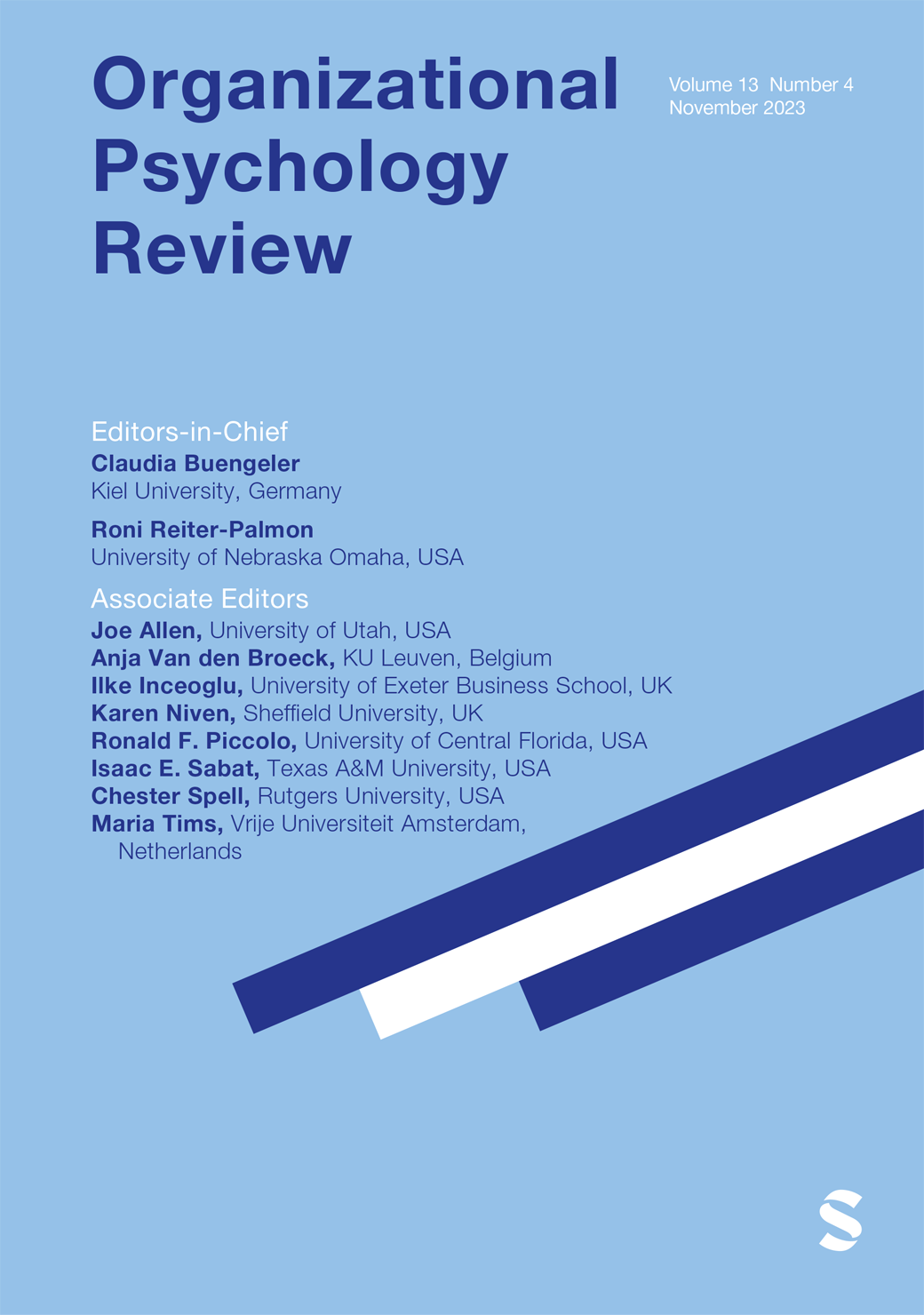将人力资本管理、员工敬业度、感知到的组织支持和自我报告的员工工作绩效联系起来
IF 7.1
1区 心理学
Q2 MANAGEMENT
引用次数: 0
摘要
目的。人力资本是企业最主要的无形资产,也是决定企业非竞争优势的主要因素。本文考察了人力资本管理的选择方面对自我报告员工工作绩效的影响以及员工敬业度的中介作用。同样,本研究也通过自我报告员工绩效来检验组织支持感对人力资本管理的调节作用。方法。本文以定量方法为基础,采用分层和简单随机抽样技术。研究模型分析方法采用结构方程模型和AMOS对假设关系进行检验。发现。人力资本管理的各个方面与自我报告的员工工作绩效呈正相关。此外,员工敬业度在知识可及性、学习能力、领导实践、职业发展和员工自我报告工作绩效之间的关系中起部分中介作用,组织支持感正向调节作用。反之,劳动力优化与员工工作绩效、优化与员工自我报告工作绩效之间存在显著的调节作用。对实践的启示。本文对政策制定者、组织管理者、一般投资者,特别是银行部门,在努力制定匹配人力资本管理战略、员工敬业度、感知组织支持和自我报告员工工作绩效的战略方面具有启示意义。因此,人力资本管理的各个方面是员工敬业度和自我报告员工工作绩效的决定因素。此外,员工对组织支持的感知也有助于这种关系。本文章由计算机程序翻译,如有差异,请以英文原文为准。
Linking aspects of human capital management, employee engagement, perceived organizational support, and selfreported employee job performance
Purpose. The primary intangible asset of firms and the main factor determining the ircompetitive advantage has emerged as human capital. This paper examined the effect of the selected aspects of human capital management on self-reported employee job performance and the mediating role of employee engagement. Likewise, this study tested the moderation role of perceived organizational support on the human capital management with self-reported employee performance link. Method. This paper is structured on a quantitative approach, with stratified and simple random sampling techniques. The research model analysis method applies structural equation modeling with AMOS to test the hypothesized relationships. Findings. The aspects of human capital management were positively related to self-reported employee job performance. Moreover, employee engagement partially mediates the relationship, and perceived organizational support positively moderates the association between knowledge accessibility, learning capacity, leadership practice, career advancement, and selfreported employee job performance. Conversely, it has an in significant moderation between workforce optimization and employee job performance, optimization and self-reported employee job performance. Implications for practice. This paper has an implication for policy makers, organizational managers, investors in general, and the banking sector in particular in their effort towards creating strategies for matching human capital management strategies, employee engagement, perceived organizational support, and self-reported employee job performance. Thus, aspects of human capital management are the determinant factors of employee engagement and self-reported employee job performance. Moreover, the perception of employees towards organizational support contributes to the relationship.
求助全文
通过发布文献求助,成功后即可免费获取论文全文。
去求助
来源期刊

Organizational Psychology Review
Multiple-
CiteScore
10.00
自引率
1.60%
发文量
25
期刊介绍:
Organizational Psychology Review is a quarterly, peer-reviewed scholarly journal published by SAGE in partnership with the European Association of Work and Organizational Psychology. Organizational Psychology Review’s unique aim is to publish original conceptual work and meta-analyses in the field of organizational psychology (broadly defined to include applied psychology, industrial psychology, occupational psychology, organizational behavior, personnel psychology, and work psychology).Articles accepted for publication in Organizational Psychology Review will have the potential to have a major impact on research and practice in organizational psychology. They will offer analyses worth citing, worth following up on in primary research, and worth considering as a basis for applied managerial practice. As such, these should be contributions that move beyond straight forward reviews of the existing literature by developing new theory and insights. At the same time, however, they should be well-grounded in the state of the art and the empirical knowledge base, providing a good mix of a firm empirical and theoretical basis and exciting new ideas.
 求助内容:
求助内容: 应助结果提醒方式:
应助结果提醒方式:


